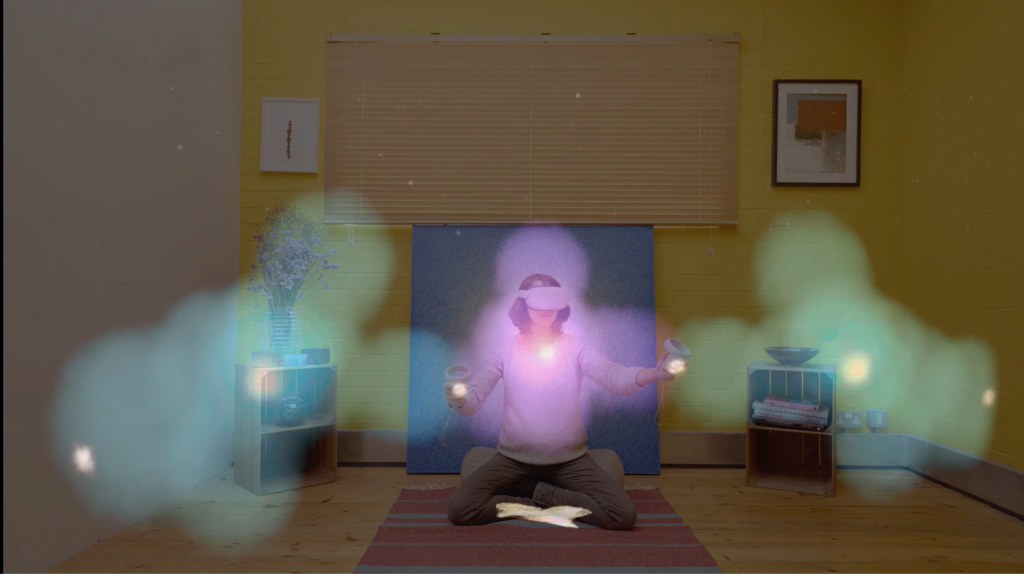
a still image of a video demonstrating how the Isness-D VR experience works. (Source: David Glowacki)
VR Shown as Effective as Psychedelics for Brain Therapy to Address Addiction, OCD, Depression
According to a study published in Nature Scientific Reports, a virtual reality experience can have the same benefits as a medium dose of LSD or psilocybin (the main psychoactive component of “magic” mushrooms) in altering sensory perception and changing the way we process information. The story in technologyreview.com explains the experiment.
The benefits of such treatment include alleviating symptoms of obsessive-compulsive disorder, addiction, post-traumatic stress disorder, and depression, which have standard treatments that fail many people.
David Glowacki—an artist and computational molecular physicist—had a transcendent experience after a health crisis and sought to recreate it to find transcendence in his thinking. He created a VR experience called Isness-D, which is designed for groups of four to five people based anywhere in the world. Each participant is represented as a diffuse cloud of smoke with a ball of light right about where a person’s heart would be during the experience.
“Participants can partake in an experience called energetic coalescence: they gather in the same spot in the virtual-reality landscape to overlap their diffuse bodies, making it impossible to tell where each person begins and ends. The resulting sense of deep connectedness and ego attenuation mirrors feelings commonly brought about by a psychedelic experience,” Glowacki explained.
Hana Kiros, the technologyreview.com writer, tried it out and reported that it was a guided meditation that brought the participants together. She asked researchers about the benefits:
“What happens in VR is that sense of completely forgetting about the existence of the external world,” says Agnieszka Sekula, a PhD candidate at the Centre for Human Psychopharmacology in Australia and a cofounder of a company that uses VR to enhance psychedelic therapy. “So there is definitely similarity there to this sense of experiencing an alternate reality under psychedelics that feels more real than what’s actually out there.”
A startup called aNUma, spun out of Glowacki’s lab, enables anyone with a VR headset to sign up for Isness sessions weekly. It sells a shortened version of Isness-D to companies for virtual wellness retreats, and provides a similar experience called Ripple to help patients, their families, and their caregivers cope with terminal illness. Isness-D is also testing it in couples and family therapy.
read more at technologyreview.com

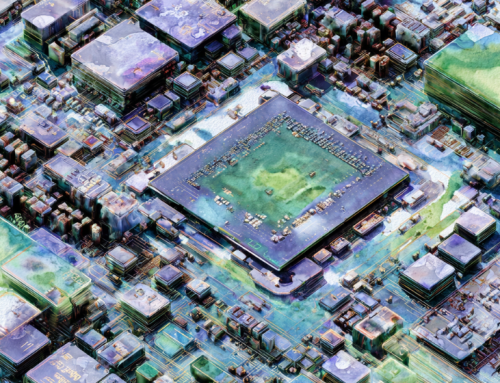
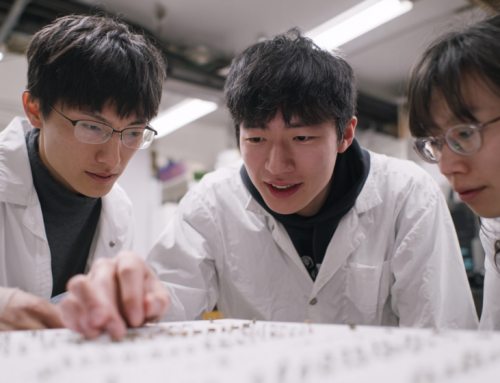
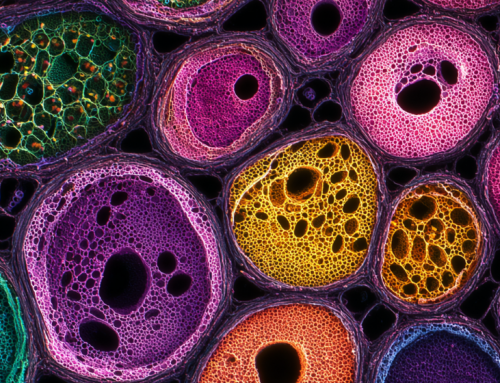
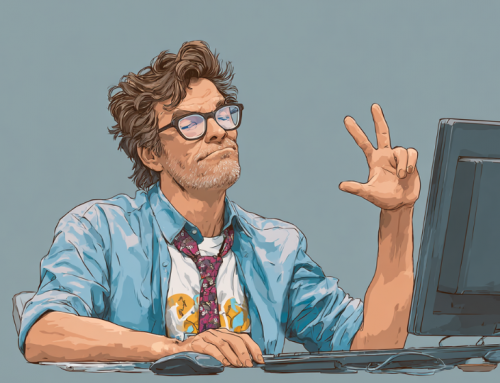
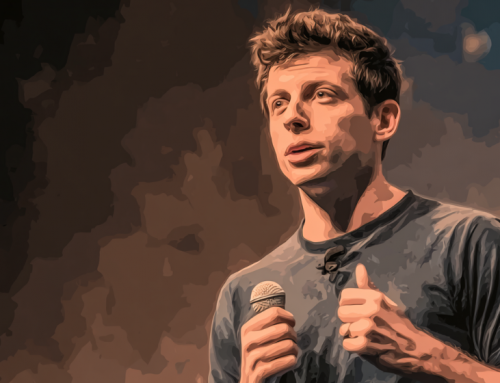

Leave A Comment